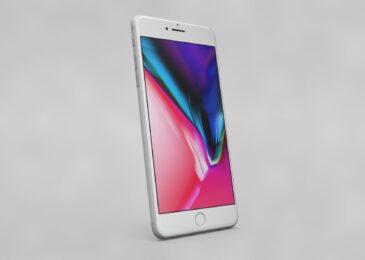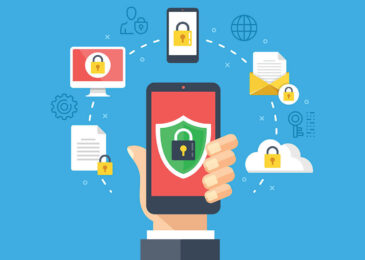What Are Top 10 Tips To Secure Your iPhone’s Data?
What Are Top 10 Tips To Secure Your iPhone’s Data?
The iOS that powers Apple’s iPhone devices has a much more positive reputation, unlike their rival – Android. iOS is often argued to be more secure and with less exposure to the security threats. However, this does not mean that Apple’s iPhone is entirely free from security issues. Personal data can still be stolen and important information can be lost. This article provides 10 tips on how you can further secure your iPhone’s data.
1. Set a PIN to unlock your iPhone –
Although there are FaceID and TouchID options, the numeric PIN is still widely used as an effective way to unlock the phone. Most people use the 4 or 6-digit passwords to protect the phone. However, to achieve more protection you can set a non-fixed length PIN. This will enable you to create an unlimited number of letter and numerical digit combinations to unlock your iPhone, which will substantially improve the protection of your phone.
Also Read – Apple iPhone 11 Review, Price, Tech Specifications & Features
2. Back up your iPhone to the Mac –
Another tip to improve data protection is to back your iPhone up to your Mac. This will help to reduce the risk of data loss. This option allows you to save important data on your Mac device, thereby avoiding the risk of losing any data if your iPhone is stolen, lost or hacked. There are different methods to back-up your iPhone. The process is a bit complicated but more info on how to back up your iPhone can be found here. By backing up your iPhone you can more effectively protect your information. In addition, you can encrypt data to achieve even more security.
3. Disable Siri on your lock screen –
Siri is a useful app and its functions are highly valued by iPhone owners. However, it is exposed to the risk of privacy data loss. It is possible that Siri can be used to unlock your phone and gain access to your personal information. The easiest and most straightforward way to eliminate this threat is to disable Siri altogether. Disabling the app will help to improve your iPhone’s data security and will help to prevent any future security threats.
4. Update your iPhone regularly –
Update your iPhone as soon as possible to ensure that you always have the most protection provided by Apple. This is probably the most important tip to enhance the security of your iPhone. Hackers and different security organisations are always looking for flaws in operating systems to benefit from reduced security. Similarly, developers are also relentlessly trying to add as much protection as possible by regularly updating operating systems. The iPhone relies on iOS and you can always update your phone to the newest version that has the highest protection against the viruses.
5. Do not download the mobile apps from unrelated sources –
The ‘Apple Store’ is the only qualified source of downloading apps to your iPhone device. By always using the official source for your apps, it ensures the highest quality apps and the lowest security risks. The apps downloaded from Apple Store have been pre-checked by Apple and are therefore deemed as ‘safe’ for your device. Third-party sources are and more toxic to your iPhone and can therefore leave your device vulnerable to security threats.
6. Protect your iCloud account –
Today iCloud is used as the backup option to store files and data of iPhone users. It is convenient for users but there is a caveat. iCloud is a risk to your privacy protection, because it is vulnerable to external agents. This means the more we depend on iCloud, the higher the risk of losing data. Therefore, it is important to place a focus on iCloud protection. One great option is to use 2-factor authentication, that protects your account with a password and notifies you if someone tries to access it. This significantly helps to reduce threats ot your iCloud account.
7. Do not connect to public Wi-Fi –
One of the most important tips to enhance your data protection on iPhones relates to Wi-Fi and wireless networks. It is recommended to avoid public Wi-Fi networks to reduce the risk of security breaches or losing any data. Public Wi-Fi spots are poorly protected since they do not rely on encrypted information. This means, in theory, that anyone can access the data on your iPhone. Therefore, it is important to protect your information by avoiding public Wi-Fi and instead rely on your mobile network or private or protected Wi-Fi networks.
8. Avoid tracking through public Wi-Fi and mobile spots –
Another risk of public networks comes from the risk of tracking. Airports or malls often use Wi-Fi networks to track their customers to better assess consumer behavior. The mobile data on the street and Bluetooth networks expose you to the risks associated with tracking. The solution is simple – just switch off your Bluetooth connection. You can do this easily by changing your iPhone settings, thereby increasing protection of your personal data.
9. Avoid using someone else’s charger –
Even something as simple as charging your iPhone, or connecting to third party devices using your cable can leave you exposed to risks of data breach. The iPhone has a built-in protection when you plug a foreign charger, which will ask you whether you trust the source, you should always use your own charger just to be safe.
10. Use more reliable VPN’s –
A VPN or ‘virtual private network’ is a useful tool, but it can also be a threat exposing you to cybersecurity risks. VPN’s are protected by data encryption although the provider of the network could have access to your data. Furthermore, many free VPNs are especially risky and threatening your privacy. Thus, you need to be very careful when choosing a VPN to use with your iPhone’s, and only select one that has exceptional reviews.
Also Read – How to Cast YouTube From Android and iPhone to TV?





